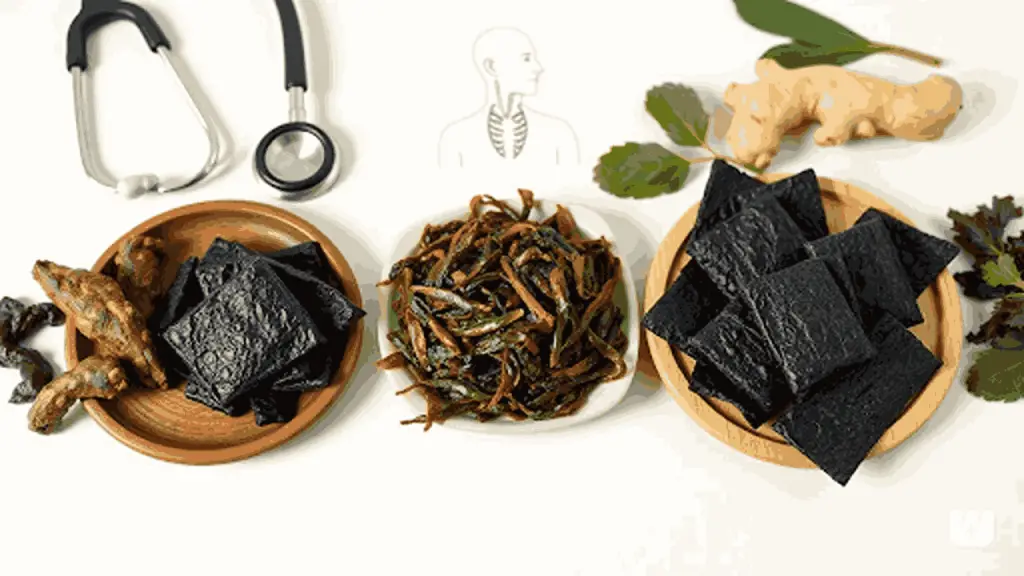As an Amazon Associate I earn from qualifying purchases.
People with thyroid problems often spend years chasing answers. One month, they experience sluggish energy, the next, weight gain, thinning or hair loss, and it’s not always clear what’s behind it.
For centuries, seaweed has been a regular part of meals in coastal cultures.
Certain major sources of iodine-rich seaweed might help support thyroid function, especially for those with an underactive thyroid. But as helpful as iodine can be, there’s a line between enough and too much.
So, is seaweed good for thyroid health? It depends on the kind, how much you eat, and your body’s needs.
Let’s unpack the science, what to look out for, and how to make seaweed part of your routine (if it makes sense for you).

Understanding the Thyroid Gland and Its Functions
The thyroid gland is tucked away at the base of your neck, This small, butterfly-shaped gland plays a surprisingly big and crucial role in keeping your body balanced.
A. How the Thyroid Regulates Metabolic Processes
Your thyroid produces hormones (mainly T3 and T4) that regulate how your body uses energy levels.
These hormones affect:
- Your metabolism
- Body temperature
- Blood pressure
- Heart rate
- Muscle strength
- Mood and memory
If your thyroid is underactive (hypothyroidism) or overactive thyroid (hyperthyroidism), you’ll likely feel it in more than one part of your life.
B. Common Thyroid Disorders and Their Symptoms
Here’s a quick breakdown of the most common thyroid conditions and how they show up:
| Disorder | What It Means | Common Symptoms |
| Hypothyroidism | Not enough thyroid hormone levels | Fatigue, weight gain, cold intolerance, dry skin |
| Hyperthyroidism | Too much thyroid hormone | Anxiety, weight loss, sweating, rapid heartbeat |
| Hashimoto’s Thyroiditis | Autoimmune attack on the thyroid | Similar to hypothyroid + inflammation, goiter |
| Graves’ Disease | Autoimmune overproduction | Similar to hyperthyroid + eye changes, tremors |
Many people live with thyroid symptoms for years before getting a proper diagnosis, which is why understanding the basics matters.
C. The Critical Role for Iodine in Thyroid Hormone Production
Without iodine, the thyroid can’t make hormones. Iodine is a trace mineral, meaning we need only a little, but it’s essential for thyroid hormone production.
That’s one reason iodine-rich seaweed (like kelp or nori) is often suggested for people with low thyroid function.
But amounts of iodine levels in seaweed can vary wildly, which is why caution is key, and we’ll dive into that in the next section.
Seaweed as a Natural Source of Iodine

Seaweed is one of the most potent natural thyroid supports and foods. It’s packed with iodine, the mineral your thyroid needs to make hormones.
Not all species of seaweeds are equal, and too much iodine can be as harmful as too little.
A. Different Types of Seaweed and Their Iodine Content
Here’s a quick comparison of common edible seaweeds and how much iodine they typically contain:
| Types of Seaweed Include | Iodine Content in Seaweed (per gram, dried) | Notes |
| Kelp | 1500–2500 mcg | Extremely high iodine; use with caution |
| Wakame | 66 mcg | Milder option, still supportive of the thyroid |
| Nori | 16 mcg of iodine | Lower iodine, safer for regular consumption |
| Dulse | 70–150 mcg | Moderate, varies by source |
If you’re exploring seaweed primary hypothyroidism treatment, the goal is to find the best seaweed for iodine deficiency without overdoing it.
B. Safe Consumption Levels for Optimal Thyroid Health
The recommended daily intake in adults is about 150 micrograms of iodine. But it’s easy to overshoot that with even a small serving of certain seaweeds, especially kelp.
Safe seaweed consumption guidelines generally recommend:
- No more than 1–2 servings per week of high-iodine varieties like kelp
- Daily use of low-iodine types (e.g., nori or wakame) in small amounts is usually fine
- When in doubt, rotate types to avoid overloading any one nutrient
Remember, too much iodine, especially from iodine supplements or large kelp servings, can trigger thyroid problems in sensitive individuals.
C. Why Kelp Should be Approached with Caution
Kelp is often promoted for its strong thyroid benefits, and there’s truth to that. The high iodine content can help those with a deficiency.
Why kelp should be approached with caution:
- One serving can provide more than 10 times the daily iodine intake requirement
- Iodine sensitivity is common in people with Hashimoto’s or other autoimmune thyroid disease
- Contaminants like heavy metals (arsenic, lead) have been found in some low-quality kelp supplements
If you’re looking into kelp thyroid benefits, consider starting with a low iodine-containing food sources like nori first, and always discuss dietary supplement plans with your doctor.
Seaweed is good for the thyroid, but it has other nutritional benefits too. Let’s see those in the next section.
Beyond Iodine: Additional Benefits of Seaweed
While most people focus on iodine-rich seaweed for thyroid support, there’s more to it than just one mineral content..
Seaweed is an excellent source of various nutrients and compounds that may help the body and the thyroid in more ways.
A. Essential Minerals and Nutrients Found in Seaweed
Seaweed contains an impressive mix of vitamins, minerals, and antioxidants that are often missing from modern dietary sources.
Here are some standouts commonly found in seaweed supplements for thyroid health:
| Nutrient | Role in the Body |
| Zinc | Helps with hormone production and immune function |
| Selenium | Protects the thyroid from oxidative stress |
| Iron | Needed to make thyroid hormones and transport oxygen |
| Magnesium | Supports energy production and nerve function |
| Vitamin K | Supports bone and cardiovascular health |
| B Vitamins | Help convert food into usable energy |
Seaweed is one of the most natural thyroid support foods available, covering multiple nutritional bases, not just iodine.
B. Anti-Inflammatory Properties and Thyroid Health
Many thyroid conditions, like Hashimoto’s or Graves’ disease, involve chronic inflammation.
Some research suggests that compounds in seaweed, such as fucoidan and phlorotannins, have anti-inflammatory and antioxidant effects.
This matters because inflammation can disrupt hormone signaling and worsen thyroid-related symptoms.
Eating seaweed regularly (in safe amounts) may help calm inflammatory pathways in the body, which could support thyroid balance.
C. Potential Gut Health Benefits
Poor gut health can affect nutrient absorption and hormone metabolism, and even trigger immune responses that target the thyroid.
Here’s where seaweed for thyroid health shines again:
- It’s rich in prebiotic fibers, which help feed beneficial gut bacteria
- The polysaccharides in seaweed may support the gut lining and immune balance
- A healthier gut can lead to more stable energy, better digestion, and steadier thyroid function
From trace minerals to anti-inflammatory compounds and gut-friendly fibers, seaweed is one of the most well-rounded, natural thyroid support foods out there, as long as it’s eaten in moderation and tailored to your needs.
In the next section, let’s find some easy ways to add seaweed to your diet safely.
Incorporating Seaweed Safely Into Your Daily Diet

If you pick the right type of seaweed, a small sprinkle can go a long way, especially when working with a thyroid condition.
A. Recommended Types: Nori, Wakame, and Dulse
If you’re easing into it, nori is a solid starting point. It’s light on iodine but still offers trace minerals, a little protein, and even B12.
It’s also convenient, those roasted seaweed snack sheets are easy to grab and go.
Wakame is another favorite. Toss a few strips into soup or broth, and you’ve got a warm, nourishing dish that quietly supports thyroid balance.
Then there’s dulse, with its deep red color and naturally salty flavor. A pinch of your eggs or mixed into salads adds a nice mineral boost without going overboard.
B. Practical Serving Suggestions and Recipes
You don’t need a recipe book for a healthy diet. Just keep things simple:
- Wrap your lunch in nori instead of bread.
- Stir wakame into miso or rice bowls.
- Add a few dulse flakes to roasted veggies or scrambled eggs.
- Sprinkle crushed nori onto avocado toast.
If you’re wondering how to eat seaweed for thyroid health without doing damage, the key is to stick with low to moderate iodine seaweeds like these, and don’t go overboard.
A couple of small servings a week is usually fine for most people.
C. Considerations for Those with Existing Thyroid Conditions
If you’ve been diagnosed with symptoms of hypothyroidism, Hashimoto’s, or anything else thyroid-related, slow and steady is the way to go.
Some people react poorly to even a little excess iodine. And seaweed, especially kelp, can be potent stuff.
Before making it a regular part of your balanced diet:
- Check your current intake. You might already be taking excessive iodine intake from table salt or a multivitamin.
- Skip kelp unless your doctor specifically tells you otherwise.
- Watch your symptoms. Any changes in mood, heart health, or energy? That’s your cue to reassess.
- Get tested. Ask your provider to check levels of iodine and thyroid levels before you jump in.
Seaweed is not a cure, but a part of a natural thyroid support foods toolkit, one that works best alongside medical care, not instead of it.
And always look out for professional advice. If you’re confused about when you need professional help, continue reading.
When to Seek Professional Guidance

Adding seaweed to your meals might seem harmless, even healthy. But if you’ve been dealing with thyroid issues, or even just suspect something’s off, it’s not something you want to guess your way through.
A. Signs Your Thyroid Needs Medical Attention
It’s easy to overlook thyroid symptoms, especially early on. You’re tired more than usual, your skin gets dry, maybe you’ve gained weight without changing your eating habits.
Or the opposite, your heart races for no clear reason, and sleep becomes harder. These things add up.
If you’re noticing:
- Constant fatigue that sleep doesn’t fix
- Thinning hair or brittle nails
- Anxiety or mood swings out of the blue
- Unexplained weight gain or loss
- Feeling cold when others aren’t
These symptoms might seem vague, but they’re often connected to thyroid hormone imbalances.
B. The Importance of Testing before Supplementation
People start to assume they need more iodine just because they have thyroid issues. It’s not always the case.
Too little intake of iodine can cause trouble, but too much? That can cause just as many problems, especially for people with autoimmune conditions like Hashimoto’s.
This is why testing matters before changing your dietary preferences or adding seaweed regularly.
A simple thyroid panel and, in some cases, an iodine test can give you answers your body won’t always say out loud.
C. Balancing Seaweed Consumption with Other Dietary Needs
No rule says seaweed is bad for thyroid health, it has its place. But it shouldn’t be the only thing you rely on. It works best when it fits into a bigger, balanced picture.
That means:
- Keeping other iodine sources in mind (like iodized salt or multivitamins)
- Being mindful of portion sizes, a little seaweed goes a long way
- Not using food to replace medication if you’ve been prescribed one
- Talking to your doctor before making any big changes
Seaweed is helpful, but not the whole answer.
Conclusion
Seaweed can be a smart, natural way to support your thyroid, but like anything health-related, it’s all about balance. With just a few servings of the right types (nori, wakame, or dulse), you might give your body the minerals it’s been missing without overdoing it on iodine.
Still, thyroid health isn’t one-size-fits-all. Whether managing a diagnosed condition or just curious about natural thyroid-supportive foods, checking in with your healthcare provider is the best first step. That way, seaweed becomes a tool, not a risk.
Listen to your body, stay informed, and choose what works for you.
Amazon and the Amazon logo are trademarks of Amazon.com, Inc, or its affiliates
